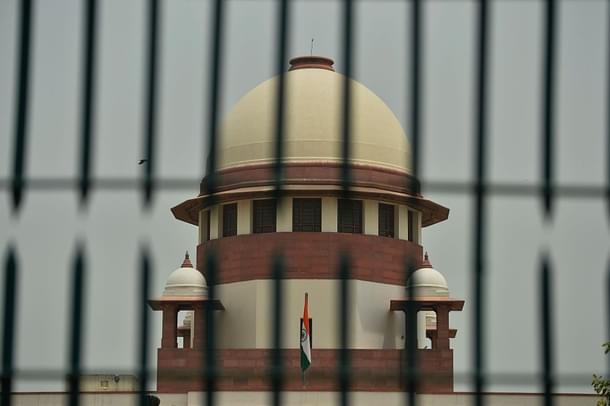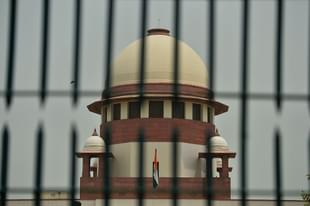News Brief
Kerala Muslim Family Seeks Property Rights For Daughter, Supreme Court Asks Centre If Not Following Sharia Is An Option
Nishtha Anushree
Jan 28, 2025, 04:04 PM | Updated 04:04 PM IST
Save & read from anywhere!
Bookmark stories for easy access on any device or the Swarajya app.


The Supreme Court has questioned the Centre on whether an individual born into a Muslim family can adhere to secular laws regarding property matters, or if they are obligated to comply with Sharia, the personal law for Muslims, NDTV reported.
The Centre has been given a four-week deadline by a bench headed by Chief Justice of India, Sanjiv Khanna, to respond to Safiya PM's plea. The next hearing has been scheduled for 5 May amid discussions on the Uniform Civil Code.
Safiya is from Kerala and has expressed her desire to bequeath all her property to her daughter. According to the petition, her son suffers from autism and her daughter is his primary caregiver.
According to Sharia law, upon the division of the parents' property, a son is entitled to a share that is twice the size of a daughter's. The individual filing the petition has expressed concern that if her son, who has Down Syndrome, were to pass away, her daughter would only receive one-third of the property, with the rest being allocated to a relative.
In her petition, Safiya states that since she and her husband do not practice Islam, she should be permitted to distribute her estate according to the Indian Succession Act. At present, the Indian Succession Act is not applicable to Muslims, a point which Safiya's petition takes issue with.
During the court proceedings, the case was described as "very interesting" by Solicitor General Tushar Mehta.
The unfolding situation takes place in the context of ruling Bharatiya Janata Party's (BJP's advocacy for a unified civil code that would apply the same civil laws to all citizens, regardless of their religious affiliation.
While criminal laws are universally applicable, laws pertaining to inheritance, adoption, and succession vary among specific communities. Critics of a Uniform Civil Code contend that this measure could infringe upon religious liberty and jeopardise the diversity of India.
Uttarakhand has made history by becoming the first state to implement a Uniform Civil Code, as announced yesterday by Chief Minister Pushkar Singh Dhami.
He emphasised that this law has been enacted to guarantee equal rights to all citizens, without any discrimination based on caste, religion, or gender. He further explained that the UCC is a constitutional tool aimed at putting an end to legal discrimination, and it is an effort to extend equal rights to every citizen.
During his Independence Day speech to the nation last year, Prime Minister Narendra Modi highlighted that the Supreme Court has issued several instructions concerning a Uniform Civil Code.
Nishtha Anushree is Senior Sub-editor at Swarajya. She tweets at @nishthaanushree.





